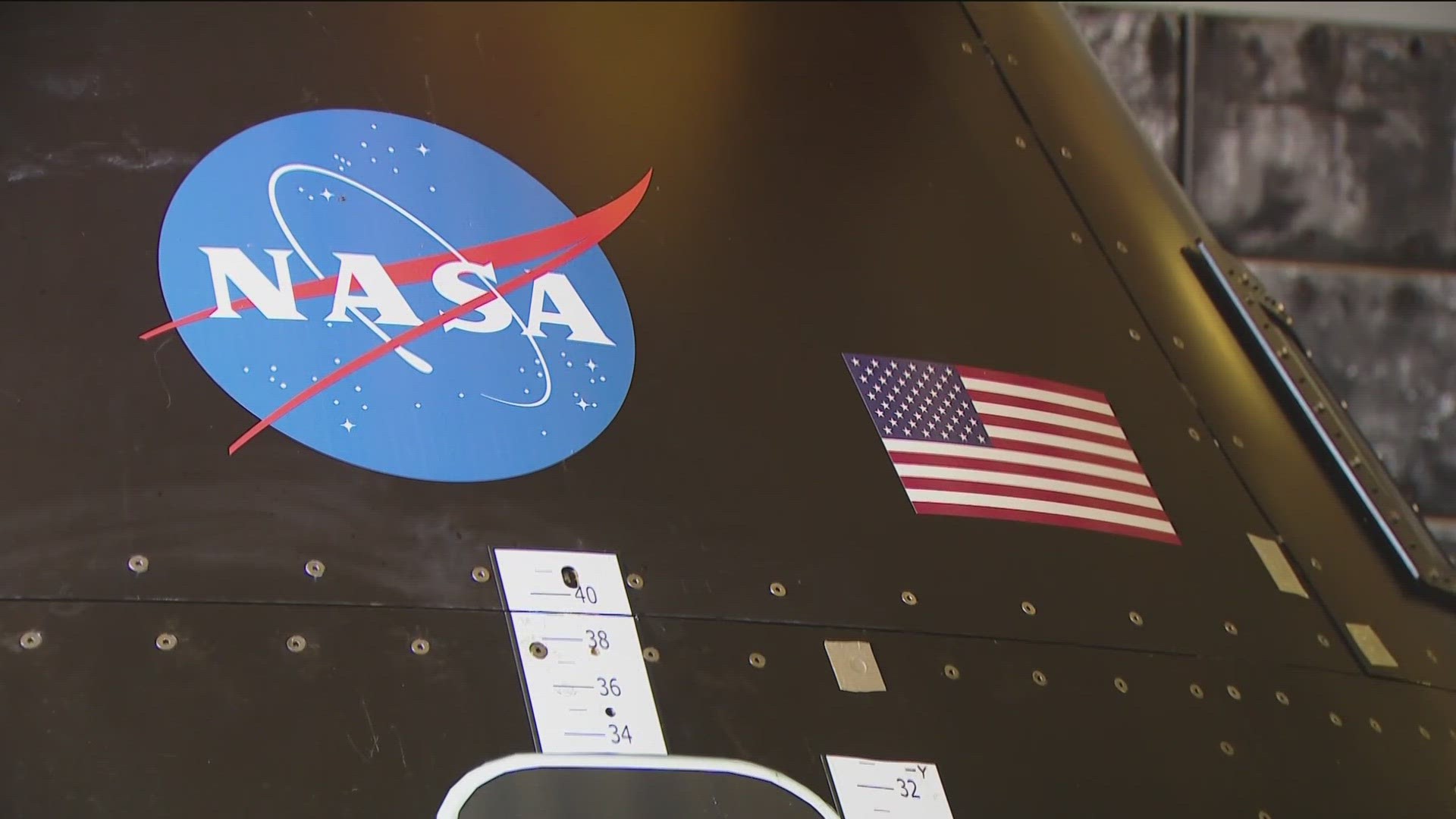SAN DIEGO — Training has already begun for the Artemis ll crewed mission around the moon, and San Diego played host to the joint training effort between NASA, the U.S. Navy, and the U.S. Air Force.
“It was special to be a part of this; it’s a history-making event, is what I told the crew,” said Captain Doug Langenberg, Commanding Officer of the USS John P. Murtha.
The first capsule recovery test for the Artemis ll mission right here off our San Diego coast was successful, and for the crews involved, it was special.
“There were a few moments there when they were making the countdown to capsule splashdown where you could really kind of feel what it would be like if Orion was coming back," Murtha said.
CBS 8 was given our first look at what’s called the “Crew Module Test Article,” or nicknamed “Vader.” It has an internal cabin to simulate an actual space capsule with a crew inside it.
“Nothing goes the same out there, you know, everything’s different,” said Ryan Crider, Command Master Diver for Expeditionary Support Unit 1, which played a role in the Orion capsule recovery for Artemis l.
For the next mission with Artemis ll, small boat crews will be challenged to extract four astronauts from the capsule after splashdown at sea. Once it’s confirmed the capsule is secure and not leaking ammonia, the underwater medical officer will board the capsule to assess the astronauts. Once they’re ready, crews will begin the extraction process.
“We begin to inflate a ‘front porch.’ It’s just a big inflatable that we put all the astronauts on,” said Crider. “We pull it off to a safe location, and that’s when the helicopter will come in and extract them.”
With a full training workup and capsule recovery now under their belt, NASA crew members are feeling confident. The next training phase will involve placing actual Artemis ll astronauts inside the test capsule during recovery instead of stand-in personnel who were used this time.
“It was fascinating, this is a big, complex operation, and everybody was just wonderful. This is a once-in-a-lifetime experience to be out in the water and doing what we do. It’s fun, but it’s a lot of work,” said Lili Villareal, NASA’s Landing and Recovery Director, who admits being a part of history feels surreal.
“Yesterday we were like, ‘We did it, we met all of our objectives, we were successful,’ and it hasn’t hit me yet. I think tomorrow it will,” said Villareal.
The Artemis ll mission is tentatively scheduled to launch in November of 2024.
WATCH RELATED: NASA's Orion capsule arrives in San Diego after historic mission (Dec. 2022).

